Kicking off in Manhattan, Climate Week NYC 2025 urged governments and businesses to step up ambition and accelerate global collaboration, as mounting climate challenges demand faster innovation and decisive action
Organisers of Climate Week NYC 2025 delivered a blunt message to delegates gathering in Manhattan: political and business leaders must confront escalating climate threats with far greater urgency and ambition.
This year’s theme, “Power On”, is billed by the Climate Group as a rallying call to accelerate climate action, drive innovation and supercharge global collaboration.
On the opening day, Climate Group chief executive Helen Clarkson, acknowledged the impact of the political change since president Donald Trump took office, saying: “It may seem contradictory to talk about power at a time when so many of us feel powerless. Just one person, one voice, one vote.
“Money talks and at the moment it’s saying it doesn’t want to give up any of the riches from fossil fuels and will prioritise wealth today over a secure future tomorrow.
She said the climate crisis cannot be tackled at an individual level, it requires collective action and that “Climate Week is about what we can do together”, adding “In the end we’ll either have a livable planet or we won’t. It’s an uphill struggle, we know we don’t have a choice.”
Several other speakers also criticised Trump for pulling out of the Paris Climate Agreement in January this year when he said the international accord to reduce greenhouse gas emissions was an unfair burden on the US.
Actor and co-founder of The Solution Project, Mark Ruffalo, described the current political situation as one where “we have a president who’s denying climate change and we have a fossil fuel industry that’s just completely gone off the rails with lies and throwing money at this issue.”
“It’s about better lives today. It’s about good jobs and growth. It’s about energy security. It’s about reducing costs.”
Ed Miliband, energy security
He added: “What I’d like to see political leaders do is actually use the power. There’s 80 million people in America that know that climate change is real, that it’s actually affecting our lives, that it’s caused by us […] burning carbon, and want to do something to change it for the grandchildren and the coming generations.
“So we have this enormous amount of power that we need our elected officials to actually […] have the guts to tap into and create coalitions.”
Tzeporah Berman, chair Fossil Fuel Non-Proliferation Treaty Initiative, said: “It is essential for countries to be strengthening their plans under the Paris Agreement, building electrification infrastructure, investing in renewables. But we can’t just build the good stuff. We have to stop building the bad stuff. Because the atmosphere doesn’t care how many solar panels we build. The atmosphere cares how many fossil fuel projects we don’t.”
Meanwhile, energy secretary Ed Miliband, struck a more optimistic tone, saying: “My most important message today is don’t believe the doomsters, the gloomsters or the naysayers who say the world is somehow moving away from climate action and clean energy. It’s not the case.
“One of our prime minister Keir Starmer’s five missions is to become a clean energy superpower. That means having a clean energy clean power system by 2030, so 95% zero carbon energy powering our electricity system and accelerating to net zero.
“Why are we doing it? It’s the right thing to do for future generations, but it’s also the right thing to do for today’s generation. It’s about better lives today. It’s about good jobs and growth. It’s about energy security. It’s about reducing costs.”
In a session focused on long-term solutions, Australian billiionaire Andrew Forrest, chairman of Fortescue Metals Group, made the business case for climate action, saying: “The falling costs of equipment to make energy is unparalleled. The winds are blowing at the back of those people that want to stop global warming, and blow in the face of those that don’t believe in it.”
Forrest advocates for “real zero” by ending fossil fuel combustion rather than relying on offsets, which are criticised for feeding financial markets and the fossil fuel sector without climate benefit.
He admitted his company burns around a billion litres of diesel equivalent a year but said it has commmited to ending all “terrestial emissions” by 2030, addressing its shipping fleet and expects to save shareholders money.
He closed the session with a call to business leaders: “I’m asking all chief executives – when will you stop burning fossil fuels?”
Building is a partner of The Climate Group



















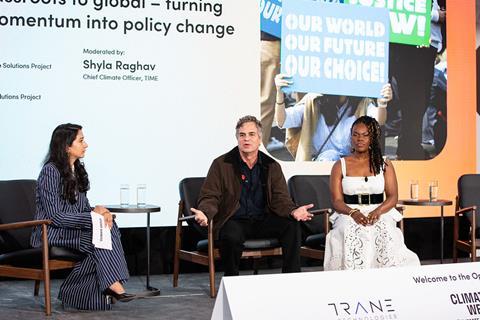
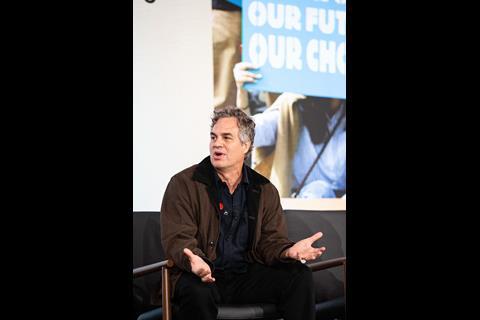
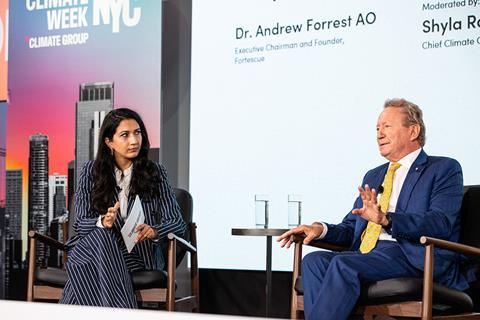
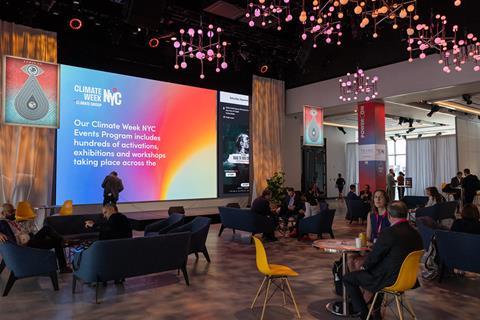
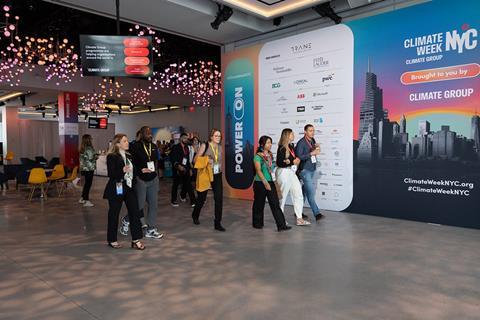
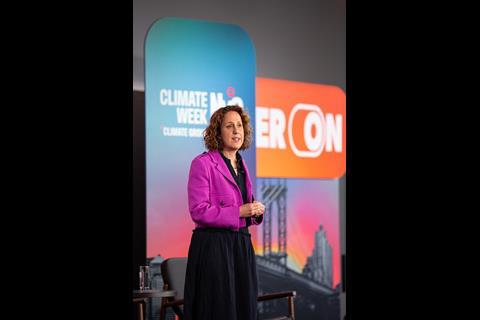
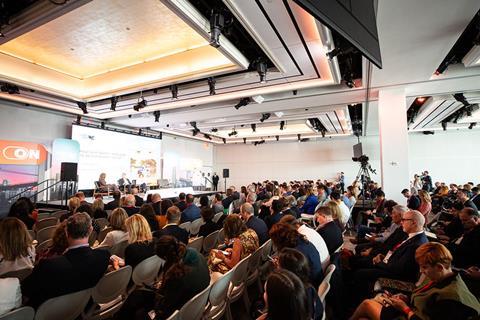
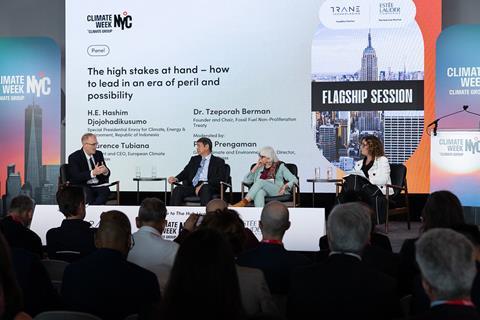
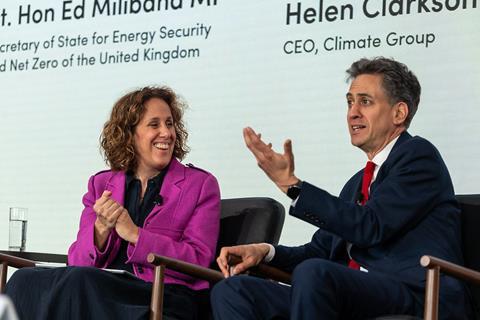
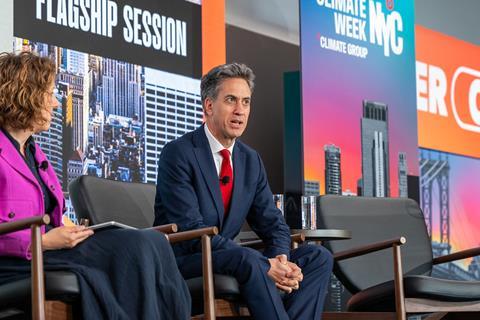




No comments yet